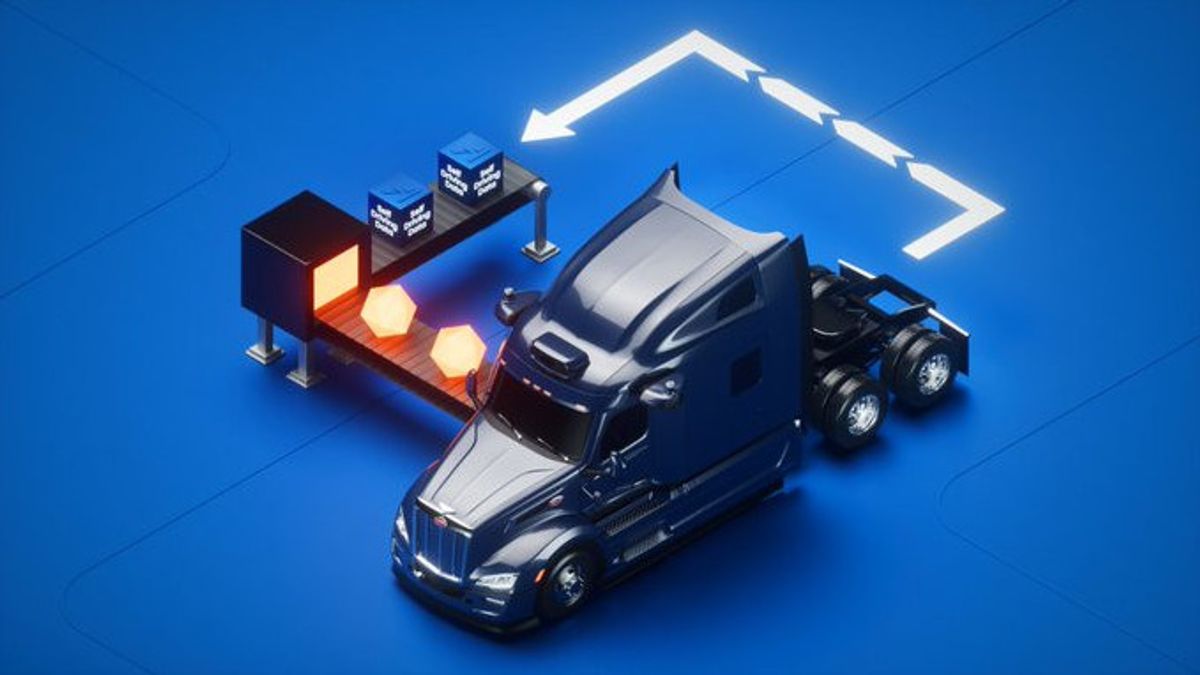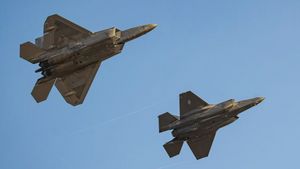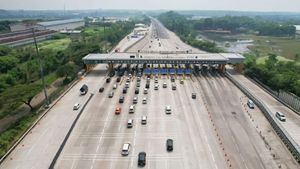JAKARTA - Developing a fully autonomous vehicle (AV) that can go anywhere is proving to be more difficult and more expensive than expected. But investors continue to fund startups targeting simpler self-driving vehicle solutions, away from pedestrians and other unpredictable human-operated vehicles.
British AV software company Oxbotica, Sweden's Einride, American Outrider and British supplier Aurrigo International Plc are among the companies appealing to investors with a more focused approach aimed at a smaller, more modest customer segment. from mining vehicles to tractors or forklifts.
According to Kasper Sage, managing partner at BMW's venture capital fund, BMW iVentures, after seeing robotaxi companies spending billions on technology that could be years away, investors are looking for startups that spend less money and should already be generating revenue. BMW iVentures now led a $20 million round of funding for autonomous forklift company Fox Robotics in October.
"Full autonomy in every type of environment is still years away, if not decades," Sage said. "You need to have a successful business case and you need to make the problem smaller."
A previous promise made by the robotaxi company to put its vehicle fleet up and running by early 2020 has fallen through. When Ford Motor Co and Volkswagen AG discontinued the self-driving unit Argo AI in November. Ford CEO Jim Farley says the profitable robotaxi business is still years away.
Ford rival General Motors Co also spent nearly $2 billion last year on its robotaxi Cruise unit and said it anticipates spending even more in 2023.
The problem is that building robotic cars that can drive safer than humans is extremely difficult. This is because AV systems still lack the human ability to predict and quickly assess risk, especially when faced with unexpected incidents.
When it became clear that the era of robotaxis was still far away, investors in 2021 turned to self-driving truck companies that promised a quicker route to market by transporting goods autonomously. They reasoned that it would be easier to develop the AV to operate on highways at high speeds, or speeds without pedestrians.
But the rookies also struggle to make it happen because fast-going robots still can't match the human brain.
Truck technology company AV Aurora, for example, has a market value of US$2 billion, a fraction of the US$12.5 billion when it goes public in 2021 through a special purpose acquisition company (SPAC).
Faced with the long-term conundrum that humans and robots do not mix well, investors have gone back to basics, targeting less complex and less cash-intensive forms of autonomy with clearer return paths, operating at lower speeds with little or no traffic.
BMW iVentures has also invested in AV truck technology company Kodiak Robotics, which managing partner Sage says has adopted a simpler approach to areas like mapping.
In October, Kodiak won a $50 million contract to develop AVs for the U.S. Army.
"It helps that we don't overspend, like some people have," said Kodiak CEO Don Burnette.
Overall venture investment in AV firms in the fourth quarter plunged 47% to $1.4 billion from a year earlier, according to PitchBook senior analyst Jonathan Geurkink.
But $500 million of that went to electric truck company AV Einride, which is working to get driverless trucks on public roads but focusing first on less busy private roads in customer logistics and manufacturing centers like GE Appliances, a unit of China at home appliance maker Haier.
"The shift in investment, towards off-road/more structured environments is very real given the lack of progress in passenger AV (and) the high capital requirements," said Asad Hussain, research partner at private equity firm Mobility Impact Partners.
SEE ALSO:
Last month, British AV software startup Oxbotica announced a $140 million fund to launch more products, starting with AVs operating in mines and remote areas.
"We're really focused on 'somewhere' autonomy rather than 'anywhere' autonomy because that's where the value is right now," said Oxbotica CEO Gavin Jackson.
Jamie Vollbracht, the founding partner of Kiko Ventures, a US$450 million clean technology investment platform from IP Group Plc, said mining companies could lose millions of dollars an hour in remote areas if they were unable to fit human drivers into trucks, putting them among the increasingly lots of viable markets for AV. Kiko was Oxbotica's first institutional investor.
"There was an underestimation of the scale of the initial application (AV)," said Vollbracht.
US startup Outrider in January announced a $73 million round of funding to scale up its self-driving trucks that are currently operating at low speeds in customers' distribution yards.
Construction and farming equipment - used off-road in low-traffic environments - have become another area of growth for AV startups. They operate alongside traditional heavy equipment makers such as Caterpillar Inc, Deere & Co, and CNH Industrial NV who are also investing in AV technology.
“Like Oxbotica, Apex.AI designs AV software for use in a variety of vehicles for “a wide range of non-automotive and trucking customers (with) a variety of applications,” said CEO Jan Becker.
U.S. farm equipment maker AGCO Corp, for example, is also using a Palo Alto, California-based startup software for its experimental automated electric cultivator.
Deere has already acquired a number of AV-related businesses as it moves toward autonomy, including self-driving tractor company Bear Flag Robotics for $250 million in 2021.
San Francisco-based Trucks Venture Capital had invested in Bear Flag prior to its sale and managing partner Reilly Brennan said the company is "actively seeking other autonomous ag (startups)."
Trucks Venture Capital also invested in Teleo, a semi-autonomous retrofit maker for heavy construction and mining equipment that announced a $12 million round of funding last June.
The Teleo system allows a human operator to remotely control multiple slow-moving AVs and take over only in situations the software can't handle.
Teleo CEO Vinay Shet said combining the best AV software and a human brain allowed Teleo to "build real products that can be brought to market today and not wait another decade or two."
The English, Chinese, Japanese, Arabic, and French versions are automatically generated by the AI. So there may still be inaccuracies in translating, please always see Indonesian as our main language. (system supported by DigitalSiber.id)


















